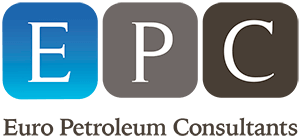The MENA Region remains very active – the last few months have seen a series of announcements with regards to new projects. These projects have for goal to increase the scope of hydrocarbon production: refining, petrochemicals, production of high-marginal innovative products and also the development of LNG as a standalone industry.
These projects generate the requirement for important activity in a number of sectors: construction, logistics, shipping, bunkering, transfer and ensuring environmental integrity. Nowadays a common and important service in all investment projects and business processes is Digitalization.
When embarking on a new project it is important to analyse whether real experience in digitalization for the oil and gas industry will be important throughout the project execution stages.
Best practices in the Digital Industry
Newly developed projects have an extremely diverse structure of shareholders (clients), contractors (Technology Licensors and engineering companies) and vendors. In manufacturing and construction the focus is generally on the expertise from previous projects and the application of best practices and the lessons learned.
With digitalization, the situation is different and much more exciting - simply because the evolution in digital technologies has been and is very rapid. We all see electronic products emerging on the market, and then just as fast as they appear, they become outdated. The customer is often unable to grasp the endless possibilities he can get from his product. And also, digital development experts have difficulty keeping up with up-to-date solutions.
When we talk about the Industry 4.0 we can include a large spectrum of technologies and sectors: from 3D printing, Artificial Intelligence (AI), Augmented Reality (AR) & Virtual Reality (VR), Blockchain, Drones & Robots, right through to the Internet of Things (IoT).
Integration Opportunities
Key megatrends of Process Transformation:
- Connectivity creates information links between system nodes, increases transparency and general awareness.
- Intelligence automates the understanding of the systems and provides subsequent decisions
- Flexible automation
Planning the supply of petroleum products, based on the analysis of all internal and external market factors, in real time, offers the best route from the point of view of minimizing costs, indicating the recommended amount and type of transport (railway, oil pipeline, or car). This approach also allows selling surplus products and purchasing raw materials from other marketers, exchanging them without financial transactions (known as SWAP transactions), selling part of the raw materials on the exchange, taking into account the law requirements.
Speaking of the many advantages of digitalization, we should not forget to mention the need to integrate the "historical heritage", i.e. already existing infrastructure, facilities and industrial facilities "as is".
Today digitalization is present in all aspects of life and in every sector.. In the industrial sector application of digitalization goes even further. Digitalization enables customers to solve any issues or problems, not only through the particular product/software developed for the customer group, but also via proper data handling, data analysis and data processing.
This approach allows for data collected on one object or markets, to be used by other players who, according to past traditional approaches to segmentation, are in no way connected with each other.
Let us try to highlight this evolution through an example: many years ago 2D design technologies were developed and implemented. Today 3D design technologies are being developed, in which digital information can be transferred to dynamic parts. As a result, there is a merger of automation and digital technology, and a "digital twin" of the enterprise can be created. Working with a digital copy of an enterprise makes it possible to solve many problems at the level of predictive analytics.
At one of our recent conferences focusing on Operational Excellence, we asked our delegates the following question: What do you see as the most important activities for 4.0 technology implementation in refining and petrochemical plants? The majority answered that they see new technology application in process control and simulation as the key area of the development. Other areas of importance were Maintenance, Planning & Scheduling of Operations, and Supply Chain Optimization.
Advantages of Reliability and Safety
Of particular note is the role of digitalization in predicting, evaluating and preventing the development of emergency situations, accidents and industrial incidents.
This mechanism includes:
- Monitoring equipment states - both static and dynamic,
- Analysis of the state of linear objects,
- Analysis of personnel actions during operations, for example, repair, loading, unloading,
- Environmental monitoring.
Efficiency in terms of operating costs and project life
As a result, costs for personnel, for order repairs and for analysis of equipment condition can be reduced. The availability of big data allows carrying out a comprehensive analysis of the object’s activity.
 Digitalization project structure (pic. 1):
Digitalization project structure (pic. 1):
Lower level
- Data collection & wrangling
- Communication and data transfer channels
- Data center
Upper level
- Cloud-based storage
- Statistics & its processing
- Visualization
- Analytics & optimization
- Predictions & forecasting
- Reliability analysis
Conclusions
What we can see is that there is a need for standards at the regional level and / or the industry of the region. For existing facilities, an audit of opportunities to achieve the best practices and / or industry of the region can be useful. To explore the positive effect of Synergy. To achieve best results from the optimization decisions taken it is important to have every element of the system infrastructure in place. Digitalisation is and will continue to be a key element for the growth and development of our industry and other sectors also.
 Euro Petroleum Consultants is a technical oil and gas consultancy with offices in Dubai, London, Moscow, Sofia and Kuala Lumpur. Euro Petroleum Consultants also organises leading conferences and training courses worldwide. For further details please visit www.europetro.com.
Euro Petroleum Consultants is a technical oil and gas consultancy with offices in Dubai, London, Moscow, Sofia and Kuala Lumpur. Euro Petroleum Consultants also organises leading conferences and training courses worldwide. For further details please visit www.europetro.com.
Published by:

